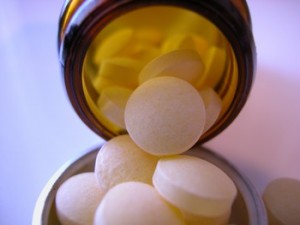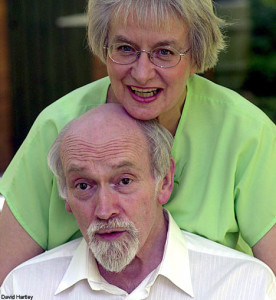Is Your Thyroid Normal? Or Your Test Accurate?
Looking at current statistics 5% of the population has low thyroid. As you will see later in the post many experts feel that the tests range to be narrowed making that percentage 20% of the population with adnormal levels.
I had a friend call me on the phone today and she said that her Tsh level was low (Thyroid Stimulating Hormone) and that her doctor wanted to put her on Synthroid a synthetic thyroid supplement.
I began asking her questions about what her symptoms. I ask her if she cold or lacked energy (I knew my 70 plus year old friend had lots of energy and she was always had warm hands when others had freezing extremities) Has your hair been falling out in excessive amounts? She did not have any of these symptoms. In fact she has lots of energy and she never is cold.
Could her Thyroid tests that the doctor gave her be in error? From what she told me it certainly can. In fact the Thyroid tests that are given at the doctor’s office is in error much of the time. And obviously there are people who have all of the symptoms of hypothyroidism but yet their doctors tell them that they are normal.
In fact there have been many arguments and valid research that says that the current standards for a normal for Tsh is between .5 to 4.5/5.0 is really not the correct range.
Having a correct reference range is a critical because your the validity of the TSH test as diagnostic tool depends on it. Doctors for the most part rely on TSH reference to treat their patient and how they treat them.
What experts are now coming to understand, however, is that the upper range in the TSH normal reference range towards the 4.5 and 5.0 many times include people who actually have mild or developing thyroid disease.
I won’t got into the detail fo how the number of normal was arrived but the American Association of Clinical Endocrinologists, that doctors “consider treatment for patients who test outside the boundaries of a narrower margin based on a target TSH level of 0.3 to 3.0.” It that were adopted as normal more like 20% of the population would be considered hypothyroid (low). But using the range up to 5.0 only 5% of the population has low thyroid.
The “normal laboratory range” of thyroid hormone is an arbitrary value, defined statistically as plus or minus two standard deviations from the mean. This so-called “normal range” is as wide as the Grand Canyon and as tall as the Empire State Building. In practice, it means that approximately 90-95 percent of the population will always fall within the normal range. However, it’s assured that 90-95 percent of the population does not feel healthy, well, or full of energy.
Blood Test for Thyroid are ususally Inaccurate
In the 1940s, Dr. Barnes realized that the blood tests were usually inaccurate. Consequently, he developed a simple test to confirm suspected low thyroid function using an ordinary thermometer. He found that normal underarm or oral temperatures immediately upon awakening in the morning (while still in bed) are in the range of 97.8 to 98.2 degrees Fahrenheit. He believed that a temperature below 97.8 indicated hypothyroidism; and one above 98.2, hyperthyroidism (overactive thyroid). Dr. Barnes recommended that the underarm temperature taken immediately upon awakening be used to diagnose hypothyroidism.
Unfortunately, even today’s highly sophisticated tests are no more accurate than the tests used in Dr. Barnes’ era. Therefore, it is better to look at symptoms and take your temperature orally (as opposed to underarm) immediately upon awakening in the morning as a guide to diagnosis and treatment of hypothyroidism. One should check their resting pulse rate which should be between 65 and 75.
Aside from problems of inaccuate lab test results and variable definitions of what is “normal” there is another reason why lab tests should not be the sole factor in determining whether an individual has hypothyroidism:
- thyroid hormone levels decline with age, with predictable effects on energy and well-being.
- It is the relative decline in your thyroid hormone level that matters, not your level compared to some arbitrarily defined standard
If your Thyroid Levels are truly low what is better a Synthetic or Natural Thyroid Medication?
Many alternative doctors beleive that it is better to treat with natural dessicated thyroid. Common brand names would be Armour Thyroid or Nature- Throid. They believe that these natural brands are better because they contain both the inactive and the active form of thyroid hormones.
Common synthetic thyroid preparations such as Synthroid, Levoxyl, Levothroid, and other levothyroxine sodium products contain only a synthetic version of T4, the inactive form of thyroid hormone. This may work for you if your body is perfect at converting the inactive T4 to the active T3 that your body can actually utilize.
However, many people have is a conversion problem or Hypothyroidism Type 2. Your body makes enough thyroid hormone, but can’t get it into the cells to actually be affective. However, there is no blood test that you can take to see if you have that problem. That is why it is important to rely on symptoms to provide a complete piece of the puzzle.
Testimonies of People who have been helped through Nutrition with Thyroid Issues
I started Shaklee Nutriferon in October of 2005. I was just basically taking it to rebuild my immune system, not realizing what it was actually doing for me. I had been taking Synthroid for my thyroid for 20 years. A small tablet once a day that I had resigned myself to the fact that I would be taking it for the rest of my life.
In January of this year I started having trouble with my Synthroid dosage and kept having to go into the clinic for blood draws. Each time that I went in, my Synthroid dosage was dropped. I would take the new dose for about 3 weeks and then the trouble would start again. The doctor, nurses and lab techs were baffled. None of them could figure out what was going on.
I stopped taking my Synthroid on Feb 15th because I felt it was making me sick. I started feeling better almost immediately after stopping the meds.
I went for another blood draw on Feb 20th, got my results on Feb 24th. My thyroid is at a normal range and I was told that I no longer needed to take my Synthroid. I have been ecstatic ever since. Who would have ever guessed that I would be prescription free after 20 years. My doctor and the nursing staff want more info on the Nutriferon and the lab tech is one of our pilot program evaluators!! Thank you Shaklee, thank you so very much. Jeannie F
This information is educational in context and is not to be used to diagnose, treat or cure any disease. This is one person’s expereince.Please consult your licensed health care practitioner before using this or an his or any medical information

